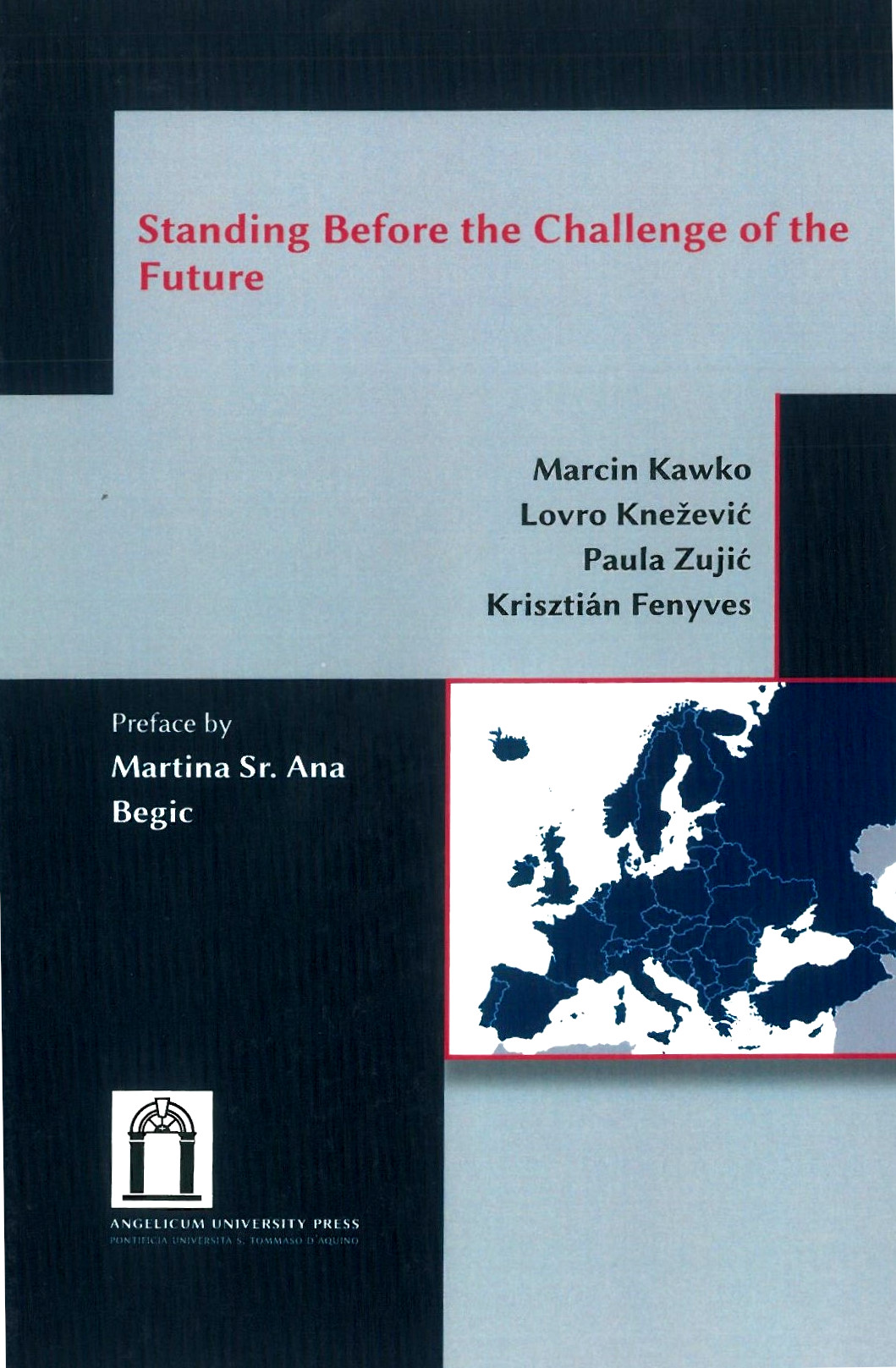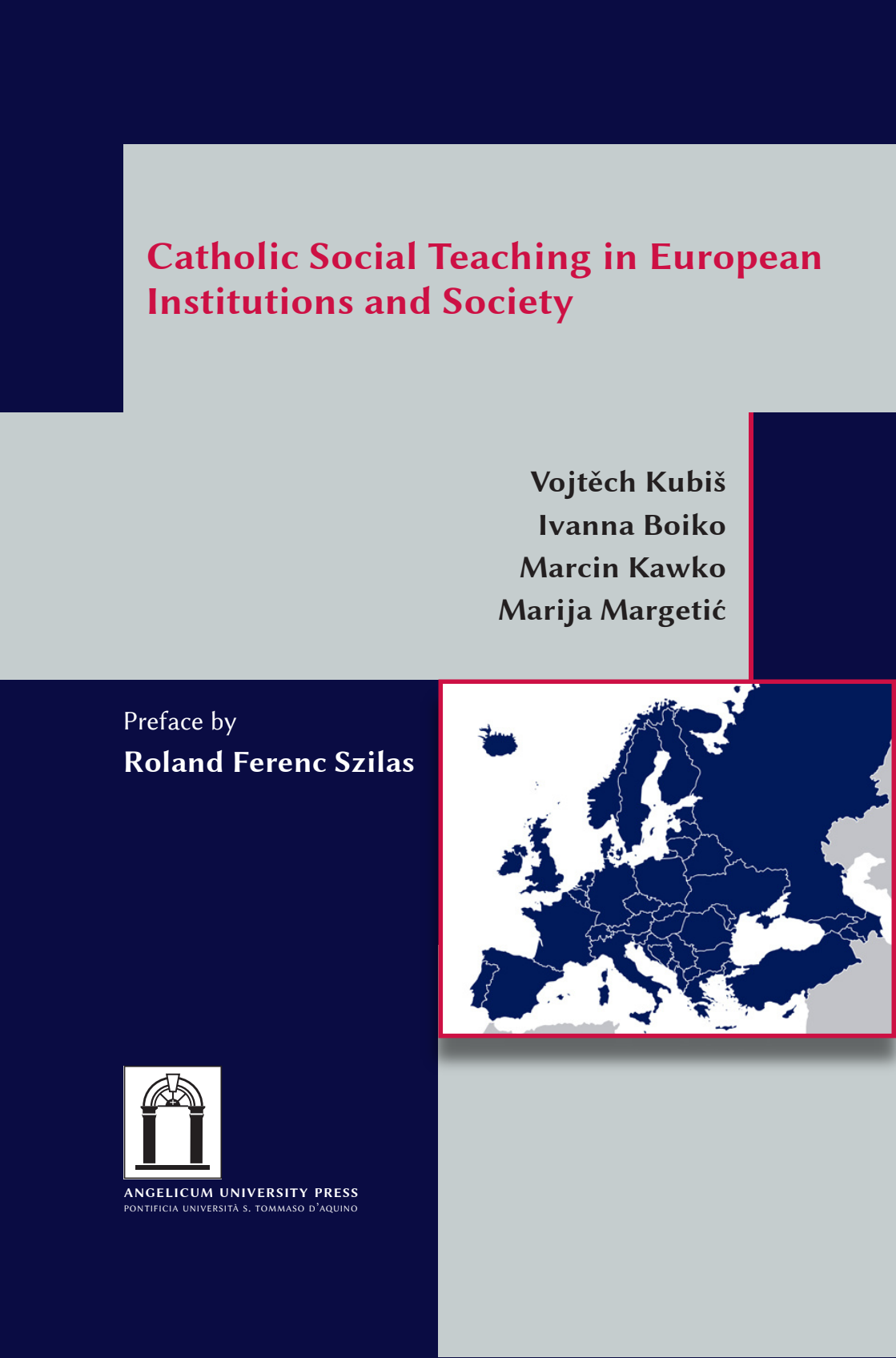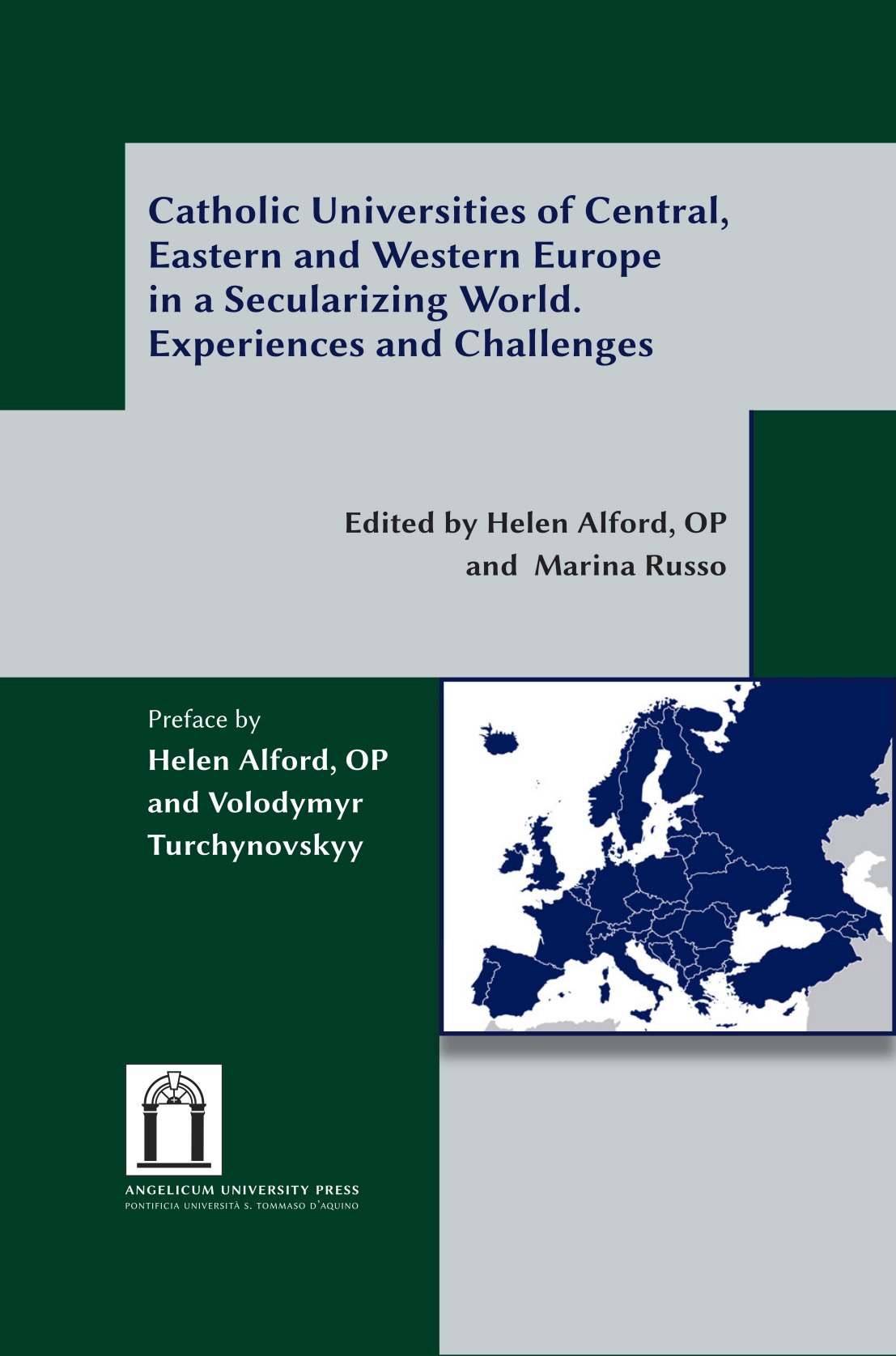Catholic Institute for Development Justice and Peace (CIDJAP),
2001, pp. 185
 In August 2000, IPCA organised its Fourth Worldwide Conference in Kroonstad, South Africa on the theme: “Creating Hope for Africa”. In that conference, Obiora F. Ike and Ndidi Nnoli Edozien, the authors of the book under review, led some work sessions on the topic “Understanding Africa”. Inspired by this very topic and the questions that were discussed in the conference, they both agreed to co-author a book on the subject. “Understanding Africa” is, therefore, the product of that agreement and resolve to “make a modest, but meaningful, contribution to the great ocean of oral and pre-literary tradition” in Africa (p. 6).
In August 2000, IPCA organised its Fourth Worldwide Conference in Kroonstad, South Africa on the theme: “Creating Hope for Africa”. In that conference, Obiora F. Ike and Ndidi Nnoli Edozien, the authors of the book under review, led some work sessions on the topic “Understanding Africa”. Inspired by this very topic and the questions that were discussed in the conference, they both agreed to co-author a book on the subject. “Understanding Africa” is, therefore, the product of that agreement and resolve to “make a modest, but meaningful, contribution to the great ocean of oral and pre-literary tradition” in Africa (p. 6).
Indeed, “Understanding Africa” is an attempt to define the complex reality of this continent and its people; it is an important introduction to the rich cultural heritage the African continent is known to have. By using the Igbo people of Nigeria (West Africa) as their point of reference, the authors have shown throughout the book that Africa is “a treasure house for authentic human values” such as solidarity, peace, generosity, education, love, forgiveness and reconciliation (p. 5). “Understanding Africa” thus illustrates how traditional social, cultural, political and economic values; religious beliefs and practices; and traditional moral and legal reasoning, can be a basis for sustainable development.
The book is divided into three parts and contains eight chapters. It has a brief conclusion, but a long preface that serves as an introduction. Except for chapters one and four, the authors have used traditional methods of communication and teaching, that is, by the use of proverbs, stories, prayers, names and myths. Infact, the book begins with a traditional prayer over the Kola-nut. Case analysis of judicial proceedings is also used, especially in chapter seven.
In the first part entitled “Traditional Legal Reasoning”, the authors sketch the history of the Igbo people, their philosophy, the origins of justice, ethics and religion in the Igbo culture. Chapter one, therefore, is an introduction to the Igbo people. It is a presentation of the meaning of Igbo art, religion; property and ownership, and of their social structures, the values inherent in their culture and why these things are now falling apart. According to the authors, these features “characterise the Igbo people and seem to distinguish them from other socio-cultural groupings”. This implies therefore that there is no universal African culture but shared values and features present in the many different African societies.
The authors argue that “Igbo art is a manifestation of the aesthetic, the philosophical, the historical, the human and the divine milieu in the midst of human creativity” (p. 21). Religion is thus embodied in this art and woven into daily communal living based on a conception of a Supreme Spirit called Chukwa: the all powerful, merciful and just creator of all and provider of all that mankind needs, who can be reached through other deities and the “living dead” or ancestors.
The communal sense of living, according to the authors, manifests “interconnectedness” and is expressed in two basic ways. First, in the “sense of family” in which polygamy was viewed as a means of extending this unity and of establishing greater solidarity with society. It is not clear why the authors define the family as “large and extended”, for if the African family is a manifestation of a sense of communal living or of unity and solidarity, then the use of such words as extended may be misplaced. Second, the communal sense of living is manifested in communal ownership of property. The authors believe that “whatever property was acquired by the individual was based on the individual's right of access and use, in a proximate but not ultimate sense” (p. 24). And this was true especially with land which was considered as a bond between the living and the dead, held in trust by each generation on behalf of those yet unborn (p. 24).
Women, according to the authors, occupied a special position and played important roles in traditional Africa. Respect for womanhood is thus one of the values inherent in Igbo culture. The basis of this respect is to be found in the female deity: the earth (mother earth). They maintain that although there seem to be a separation of roles between men and women, interdependence amongst them ensured the fulfillment of both gender needs and roles.
The authors are, however, pessimistic about the future of African traditional values because of modernisation and disinteg-ration of traditional social structures. They are troubled by the fact that family uprooting has affected African morality and identity with many attempts by some Africans to renounce their own identity. The chapter is, therefore, concluded with a call to Africans to look back to their history in order not only to understand it but also to look forward to prosperity.
In chapter two, the authors seek to explore the notion of justice as rooted in the language and culture of the Igbo. They see the notion of Justice among the Igbo, to be contained in the word “Oto”, which means straight, fair, and just. They argue that justice is the work of culture and not nature and its practice among the Igbo was to be found in respect for human rights and property, distribution of goods, fair dealing and inter-human relationships, good judgement, and coexistence. Furthermore, such practices of justice expressed the continuous search for “balance and harmony”, equality, reciprocity, “proportionality and exchange” and peace (p. 33). Thus by the proverbs, folktales, myths, and names used in this chapter, the authors explain both the meaning and importance of justice in Igbo society.
Chapter three is an analysis of the foundation of ethics, religion and justice in Igbo culture. In the thought of the authors, the central reality of Igbo existence is the soil, hence, the foundation of morality, religion and justice is the earth – “Ala” or “Ani”. “Ala” is both earth and the earth deity: the most prominent deity, the “source and judge of human morality” (p. 49). She is regarded, according to the authors, as the giver and custodian of the moral law - the “Omenala”, and respect and fear for the laws or customs make people fair in their dealings. This is why laws and judgements are made in her name and punishments administered to maintain social harmony and justice.
Comparing the “Omenala”' with the Jewish Torah, the Catholic Church’s Code of Canon Law, and the British constitution, the authors argue that the “omenala” is “a generic term for the body of Igbo socio-religious laws, customs and traditions” (p. 61) that has been handed down from one generation to another. The “omenala” is, therefore, the law of the land embedded in the myths, songs, taboos, proverbs, language, prayers and all practices of the people. However, the authors think that the ultimate source of this law is Chukwu (God). And since this law has been passed from one generation to another orally, it is dynamic, while maintaining a static truth.
In concluding this chapter, the authors assert that the purpose of the “Omenala”, like that of any other law, is “to protect life and property, promote communal harmony, social justice and ethical decorum” among the Igbo (p. 62). Thus, the law is claimed to guide people in four main areas: life, economy, harmony in the community, and respect for ancestors.
Part two, entitled “Philosophy, justice and law”, is a somewhat isolated part of the book presented in only one chapter (chapter four). This part is a presentation of the concept of justice in the history of western philosophy. It is an endeavour to analyse the meaning of justice in diverse traditions: ancient Greece, Jewish tradition, classical and modern. Looking at pre-literary Greece, the authors want to emphasise that the oral tradition used by Greek poets Homer and Hesiod is an effective conveyor of traditional values and customs from one generation to the next (p. 71). Charting the different traditions, the authors establish more the unity rather than the differences between diverse thoughts and perspectives. They establish, for instance, that the ancient Greek idea that all men are equally citizens of the world because they all share in the one reason of God is the foundation for the classic theory of natural law, which has had a continuous impact upon western thought and political practices (p. 69).
The authors argue that the notion of justice interpreted to mean “an eye for an eye” can not resolve the dilemma of distributive justice. They pro-pose instead social responsibility and communal reverence to divine powers as an alternative. But a critical look at the concept of social responsibility and its application reveals that certain people (especially hard-working people) in society have to carry heavier burdens in order to meet social obligations. Thus, the notion of justice as “to each according to his rights, desserts, and needs”, has remained as problematic as the notion “to each according to his social responsibility” that the authors propose.
Part three of the book, entitled “Jurisprudence”, is an analysis of land issues, notions of individualism and communalism, alternative dispute resolution methods, and political and social life in traditional Igboland. In the course of their analysis, the authors find that the principles of solidarity, subsidiarity, and democratic participation are central in Igbo social and political practices.
In chapter five, they consider one of the most fundamental cultural, social, and economic realities of African societies, that is, property. Central to this discussion is the question of ownership, rights and duties. According to them, property in traditional Igboland has a “social function” and private property is understood to have a “social mortgage” for the security, life, and survival of the family (p. 106).
They argue that property ownership is determined by the interplay between the individual and the community and the attitude of sharing. They insist that “the attitude of sharing with others in the community what one possessed, without relin-quishing ownership, control and rights over one's property, determined the spirit behind all ownership” (p. 114). This is because property accumulation was not considered an end, but rather a means to serve community and build relation-ships. Thus, property had symbolic functions according to these authors.
Apart from the attitude of sharing, social laws such as inheritance laws determined property ownership, rights and duties. But even if inheritance laws placed the right to ownership with an individual in a family, this individual held the property in trust for the entire family members: the living, dead and the unborn. Hence, one inherited not only property rights but also duties, many of which are social in nature, while others are divine.
Land is the most valuable type of communal property in Igbo culture. Therefore, “family ownership of land thus expressed in a very profound way the communal ownership” (p. 126). However, individuals have the right to “access and use” any communal land except for forbidden or sacred land. This is true for foreigners too, although the authors suggest that the general rule governing land transfer is that land is inalienable.
Chapter six is a consideration of the relationship between the individual and community in traditional African society. It traces the concept of individualism etymologically and historically from ancient Greek philosophy through to English society. In considering the place of the individual in traditional Africa, the authors argue that the individual cannot be understood outside the corporate group and thus one's “individuality can be understood in and through his social relations” (p. 151). They argue however, that the individual is accorded rights and duties and has the opportunity for self-development within the context of the community. For every person is esteemed for himself or herself and for his/her achievements.
Underlying this communal spirit is, according to the authors, the philosophy articulated by John Mbiti as “I am because we are; and we are, therefore I am”. They argue that what guides individual responsibility within the community are “social expectations” as well as the shared values that are enshrined in the social ethos for the promotion of the common good.
Chapter seven is an interesting presentation of traditional law practice and alternative dispute resolution methods. The chapter describes the Igbo sense of justice, especially legal, social, personal and distributive justice. Employing a completely different methodology from the other chapters, the authors analyse cases to describe the different aspects of justice in Igboland. Although Igbo have a developed sense of justice, it can be observed from the analysis of the cases that the balance of justice seems to tilt more to the side of men than of women. For instance, in the case of marital disputes between Mgabafo and her husband Uzowulu, the woman does not feature in the proceedings. In fact, her brother Odukwe takes her place and the compensation is to be given to him.
The last chapter of the book is a description of the social and political structures of the Igbo people and the process of consensus building. Distinguishing clearly between centralised and decentralised systems of government, the authors observe that the Igbo, like many other African societies, have a decentralised system of administration. The clan stands at the highest level of the social and political structure. Further down the ladder is the village and then the family. Whereas the village assemblies play an important role in consensus building, authority is in the hands of a council of elders chosen for their experience.
The book concludes with a re-affirmation of the fact that Africa is a continent with great cultural heritage. The authors call all the children of Africa, friends of the continent and researchers alike to rediscover and retrieve the authentic values stored in this continent for the promotion of justice, peace, human dignity and development.
In general, “Understanding Africa” has many good points, especially as regards the presentation of African values. Reading the book is a good initiation into the rich and diverse cultural wealth that Africa has. Understanding traditional legal reasoning, jurisprudence and justice can be a good basis for understanding Africa and its values. But it is not clear why a full chapter on the history of western philosophy had to be included, since it does not seem to be written to encourage cultural dialogue. Perhaps it is more of an apology for the hard words in the introduction against people who see Africa as a “hot” country full of “dark-skinned” people.
No wonder, then, that the theme of chapter four did not form part of the questions that the authors asked (p. 8) and the main purpose for preparing this “modest but meaningful contribution” to the understanding of Africa. It must be mentioned as a limitation of the book that some contradictions are apparent, especially regarding the definition of the African family as an “extended family”. This definition seems to run contrary to the very analysis of the family as a unity of people with a  common ancestor and social ties, manifesting communal living. And the authors’ insistence on the use of this term “extended” in the last chapter depicts this contradiction as they give no better alternative word to describe the Igbo family of “Umunne” and “Umunna”.
common ancestor and social ties, manifesting communal living. And the authors’ insistence on the use of this term “extended” in the last chapter depicts this contradiction as they give no better alternative word to describe the Igbo family of “Umunne” and “Umunna”.
Nevertheless, “Understanding Africa” is but the stories, myths, prayers, proverbs, names and cases that contain the very treasure of African values and traditions; its philosophy, religion, politics, economics and land. There is not much that one would miss in reading “Understanding Africa” from what one would have heard from the African sages or “living libraries” at the fire place.
 IT
IT  EN
EN 
















